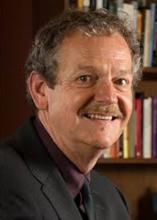What Is It
Pantheism is the doctrine that the world is either identical with God or an expression of His nature. Pantheistic ideas appear in many schools of Buddhism and Hinduism, and in the Tao-te-Ching. Pantheism also has had defenders in Western philosophy, including Heraclitus, Spinoza, Fichte, Schelling, and Hegel. Many of the Romantic poets, like Shelley, Keats, and Wordsworth, were considered pantheists. In modern times, the ecological movement has led to new interest in pantheism and its emphasis on nature as sacred. Is there a consistent world view that all these philosophies have in common? And how should we understand the claim that nature is to be worshipped? John and Ken welcome back Philip Clayton from the Claremont Graduate School, co-author of The Predicament of Belief: Science, Philosophy and Faith.
Listening Notes
Ken and John begin by discussing what pantheism is – God is everything, everything is God. Pantheists deny that God is personal, and they deny that God is transcendent, views that oppose most monotheistic religious beliefs. Thrown in sharp contrast to other religions, John questions whether pantheism is just atheism – are pantheists just nature-loving atheists? Ken thinks this understanding of God is too limited, and that there is still room for a sensible concept of God in pantheism.
John and Ken welcome Philip Clayton to the show, Dean of the Claremont School of Theology, Provost of Claremont Lincoln University, and coauthor of The Predicament of Beliefs: Science, Philosophy, and Faith. Philip argues that pantheism is distinct from classical theism and atheism and actually opens up a space between the two. Pantheism denies the classical “white guy with a beard” personal vision of God, but Philip explains that there is a long tradition of religious thought, beginning with the Greeks, that embraced a pantheistic understanding of God.
After a break, Ken probes Philip about the nature of pantheism as a religion. If religion is born of some kind of “religious experience,” as Ken suggests, what would lead a person to adopt pantheism as a religion, not just a metaphysical way of understanding the world? Philip explains that pantheism evokes both a spiritual sense of unity and a deep connection with nature. He explains that there is a distinction between science and the philosophical notion of oneness – philosophical unity is a deeper unity, called “monism” in philosophical texts. John continues to press Philip, however, by asking: how can the universe, which seems to be so vast and full of insignificant matter and nothingness, be considered sacred? Do pantheists worship this expanse of nothingness? Ken further argues that in monotheistic religions, the world is sacred because of the sacred creator that formed it – where would sacredness come from in pantheism? Philip responds to these questions and offers more detail on the nature of pantheistic beliefs.
Callers also weigh in on the discussion of pantheism. Dorothy from San Francisco points out that in pantheism, humans are united with the earth, whereas monotheism separates people from the rest of creation. Philip applies this point to the connection between pantheism and science – but, Ken wonders, does pantheism add anything to scientific theory? Jack from Berkeley describes pantheism as the linking of a false, “disenchanted” distinction between religion and science, but Ken remains skeptical that pantheism constitutes a religion.
In the final segment, Philip explains that instances of pantheistic sentiments are found in religions from Quakers to Hinduism. A final caller, Keith from San Francisco, asks how one would label people who do not believe in a personal God, but are not pantheists or monists – such as non-Orthodox Jews and reform Jews. Philip admits that theism has been contained in limiting notions of Christian god, but that there are indeed many ideas that can be classified as theism in a broader sense that are not pantheism. Philip and Ken also comment that pantheist beliefs in some form are actually quite prevalent. They end by discussing the practice of pantheism, with Philip describing historic and present cultural beliefs and practices that embody pantheistic ideas. Pantheism is a philosophically appealing view that Philip alleges many philosopher scientists currently verge on.
- Roving Philosophical Reporter (5:12) – Caitlin Esch looks for modern day pantheists. She talks to an eclectic pagan named Rabbit, owner of a magical shop called “The Sacred Well” in Oakland, California, about finding God in nature.
- Conundrum: Sherry, a philosophy professor at the University of Oklahoma, calls to ask about the hiring of felons. She asks (1) is it just for employers to have a blanket prohibition against hiring felons, and (2) if there is such a prohibition against felons, is it morally acceptable for felons to lie and claim to have a clean record to secure get a job? John and Ken weigh in on Sherry’s questions.
